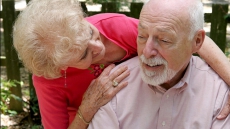Next time when you buy an antibacterial soap for a germ-free day for your kids, check if the soap contains a widely-used chemical or not.
Handwashing with antibacterial soap may expose people, especially health workers, to unsafe levels of a chemical that can interfere with hormones to cause developmental problems in foetuses and newborns, says an alarming study.
Triclosan, a synthetic antibacterial agent, is found in thousands of consumer products, including soaps, cosmetics, acne creams and some brands of toothpaste.
Exposure to triclosan, currently under review by the US Food and Drug Administration (FDA), can cause health problems, researchers say.
"Antimicrobial soaps can carry unknown risks and triclosan is of particular concern. Our study shows that people absorb this chemical at work and at home, depending on the products that they use," said Paul Blanc, a professor of medicine at University of California San Francisco.
During the study, researchers analysed urine samples from two groups of 38 doctors and nurses - three fourths of them women - at two hospitals.
The first hospital used an antibacterial soap containing 0.3 percent triclosan while the other used plain soap and water.
Researchers found that workers at the first hospital had significantly higher levels of triclosan in their urine than workers at hospital.
The scientists also asked the participants if they used a popular commercial toothpaste containing triclosan.
While those who did had higher triclosan levels than those who did not, the researchers found that washing with antibacterial soap accounted for even higher triclosan levels than did brushing with the toothpaste.
"If non-triclosan-containing soaps are available, use them," Blanc suggested, adding that just plain soap and water is a pretty good alternative.
The study was published in the Journal of Occupational and Environmental Medicine.





